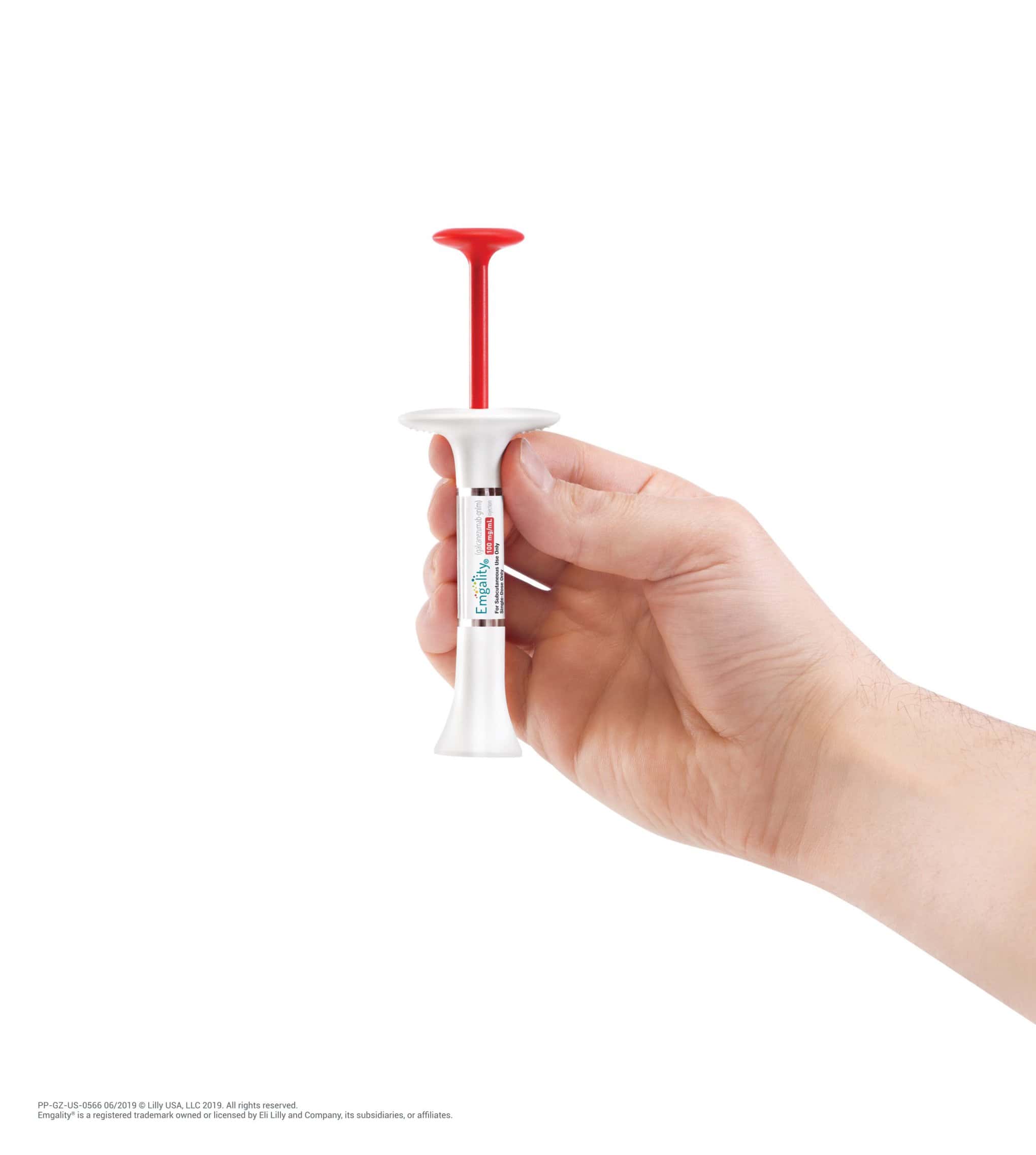Eli Lilly has pushed its nose in front of its rivals in the CGRP inhibitor market with the first FDA approval of a drug in the class for cluster headache.
Emgality (galcanezumab) has been cleared by the US regulator for the treatment of episodic cluster headache, a migraine-like condition that produces extreme pain and tends to occur in clusters that can last for several weeks or even months.
It’s not only the first of the new CGRP inhibitor class to be approved for the condition, but is also the first drug to be backed by the FDA that reduces the frequency of attacks in cluster headache patients, according to the agency’s head of neurology products Eric Bastings.
Emgality was approved in the US last September as a preventive treatment for migraine in adults, becoming the third to market for this indication after Amgen’s Aimovig (erenumab) and second entrant Ajovy (fremanezumab) from Teva.

The first-quarter performance of the products shows that Aimovig remains out in front with $59m in sales, with Ajovy and Emgality jostling for second place with sales of $20m and $14m, respectively.
Emgality’s approval is based on a trial that compared the drug to placebo in 106 patients and showed that during the three-week study period, patients given Lilly’s drug experienced 8.7 fewer weekly cluster headache attacks than they did at baseline, compared to 5.2 fewer attacks for the placebo group.
That only just scraped above the threshold for statistical significance, but the lack of effective treatments for cluster headache and supportive data on secondary endpoints prompted the FDA to give its blessing for the drug.
Approval in cluster headache gives Lilly an opportunity to close the gap with its rivals, having already suggested last month that its drug was now claiming the largest share of the new-to-CGRP inhibitor therapy market.
While far less common than migraines, cluster headaches affect an estimated 200,000 to 1m people in the US, according to the American Migraine Trust.
Moreover, Emgality seems to have the cluster headache category to itself for the foreseeable future, as Amgen doesn’t appear to have any trials ongoing in this area and Teva said in April it was abandoning development of Ajovy in this setting after disappointing phase 3 results.
Emgality is an increasingly important product for Lilly’s growth now that another recent launch – IL-17 inhibitor Taltz (ixekizumab) for psoriasis – is facing increased competition from AbbVie’s recently-approved IL-23 inhibitor Skyrizi (risankizumab), and top-selling diabetes therapy Trulicity (dulaglutide) is also under pricing pressure.
The company has filed for approval of another diabetes product to try to shore up the franchise – a fixed-dose triple therapy based on its SGLT2 inhibitor Jardiance (empagliflozin), DPP4 inhibitor Tradjenta (linagliptin) and metformin – and said yesterday the FDA had started its review of the Boehringer Ingelheim-partnered drug.




